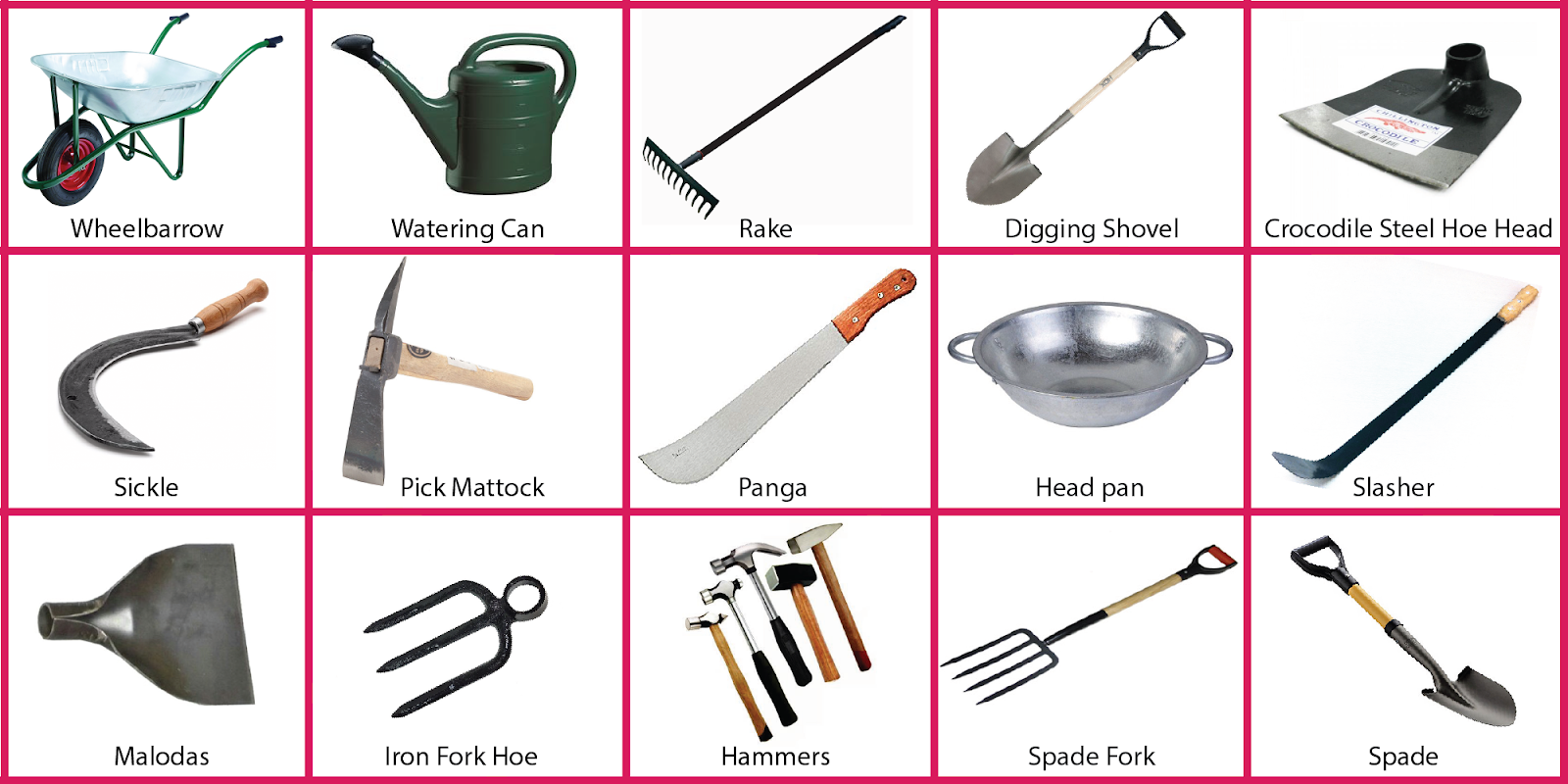When it comes to farming, having the right tools can make all the difference in productivity and efficiency. Whether you’re a seasoned farmer or a beginner looking to cultivate your first crop, a comprehensive farm tools list is essential. From essential hand tools to larger machinery, the right equipment can help you manage your land, care for your crops, and increase your yield. By understanding the tools available, you can make informed decisions about what you need for your specific farming needs.
The variety of farm tools available can be overwhelming, especially for new farmers. It's important to understand the basic functions of each tool and how they can contribute to your farming operations. Not only do these tools aid in planting and harvesting, but they also assist in maintaining the health of your soil and crops. With the right tools, you can ensure that your farming practices are sustainable and effective.
As we delve into the farm tools list, we will explore various categories of tools, their uses, and why they are essential for successful farming. This guide will help you make the best choices for your farm, allowing you to focus on what really matters: growing healthy crops and managing your livestock. Let's dive into the specifics of what every farmer should have on hand!
What are the Basic Hand Tools Included in a Farm Tools List?
Hand tools are fundamental in farming and are often the first tools that new farmers acquire. Here’s a list of essential hand tools that should be included in your farm tools list:
- Shovel: Used for digging, lifting, and moving bulk materials.
- Hoe: Ideal for cultivating and weeding soil.
- Rake: Helps level soil and gather debris.
- Pruning Shears: Essential for trimming and shaping plants.
- Spade: Perfect for edging and digging holes.
- Trowel: Useful for planting and transplanting seedlings.
- Fork: Great for turning soil and compost.
Which Power Tools Should Be on Your Farm Tools List?
Power tools can significantly enhance efficiency and reduce labor in farming activities. Here’s a list of important power tools to consider:
- Tiller: Breaks up soil and prepares it for planting.
- Chainsaw: Useful for cutting down trees or heavy branches.
- Tractor: A versatile machine for various tasks including plowing, planting, and harvesting.
- Sprayer: Helps in applying fertilizers and pesticides efficiently.
- Generator: Provides power for tools and equipment when needed.
How Do Farm Vehicles Fit into Your Farm Tools List?
Farm vehicles are essential for transporting goods and accessing different areas of your land. Some key vehicles you may want to include in your farm tools list are:
- ATVs (All-Terrain Vehicles): Great for quick trips around the farm.
- Trucks: Necessary for transporting produce to market.
- Trailers: Useful for hauling equipment or livestock.
What Should You Know About Irrigation Tools in Your Farm Tools List?
Irrigation tools are vital for ensuring your crops receive adequate water. Here are some essential irrigation tools to consider:
- Hoses: Flexible and easy to use for watering plants.
- Drip Irrigation System: Efficiently delivers water directly to the roots.
- Sprinklers: Cover larger areas and mimic rain.
What Safety Equipment Should Be on Your Farm Tools List?
Safety is paramount when working on a farm. Here’s a list of safety equipment every farmer should have:
- Gloves: Protect your hands from cuts and chemicals.
- Goggles: Shield your eyes from debris and chemicals.
- Ear Protection: Essential when using loud machinery.
- First Aid Kit: Always be prepared for minor injuries.
How Can You Organize Your Farm Tools List Efficiently?
Organizing your farm tools can save you time and effort. Here are some tips to keep your tools in order:
- Tool Shed: Designate a space for storage to keep tools dry and safe.
- Labeling: Use clear labels to identify tools quickly.
- Regular Maintenance: Schedule checks to ensure all tools are in good working order.
What Advanced Farming Tools Should You Consider for Your Farm Tools List?
As your farming operations expand, you may want to consider more advanced tools:
- GPS Technology: Helps in precision farming.
- Drones: Useful for monitoring crop health and surveying land.
- Soil Test Kits: Assist in analyzing soil health for better crop planning.
How to Create Your Own Farm Tools List?
Creating a personalized farm tools list involves considering your specific farming needs. Here are steps to help you formulate your list:
- Assess your farming needs based on crop types and land size.
- Research tools that are most effective for those needs.
- Prioritize purchasing essential tools first.
- Keep updating your list as your farming operations evolve.
In conclusion, having a detailed farm tools list is crucial for any farmer. Whether you are just starting or looking to improve your farming efficiency, understanding the tools available to you can lead to greater success in your agricultural endeavors. By investing in the right tools and maintaining them properly, you can enhance your productivity and enjoy a rewarding farming experience.



